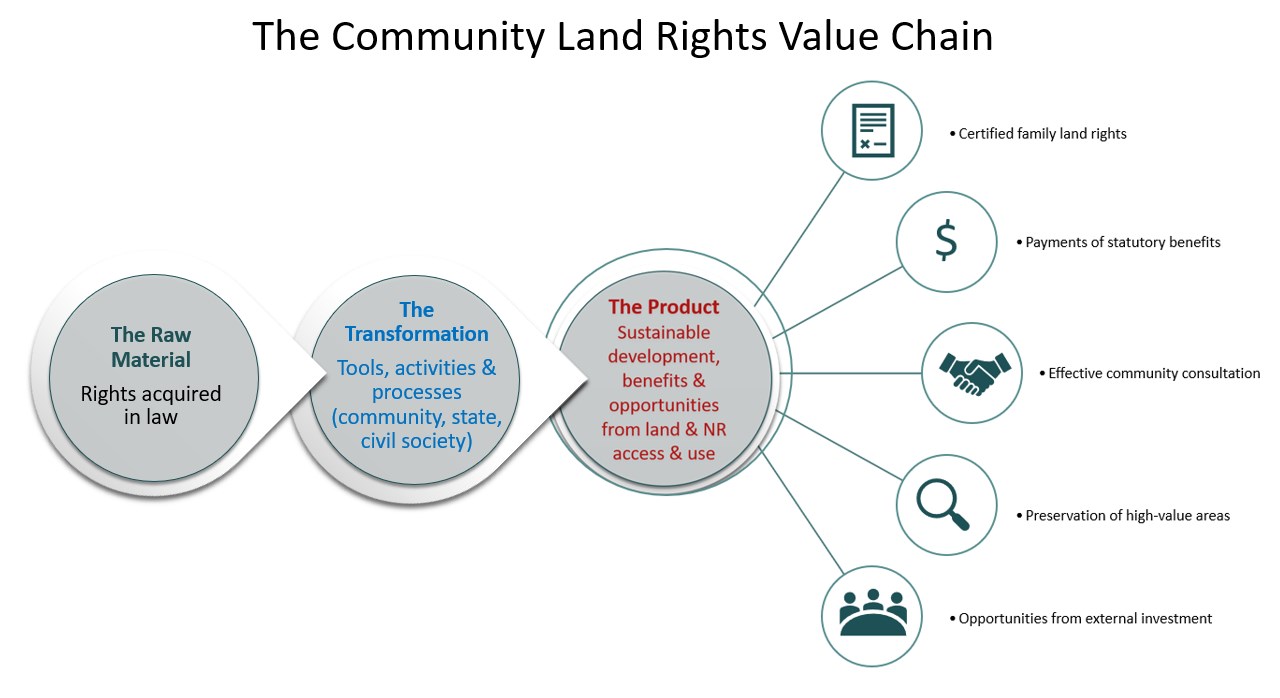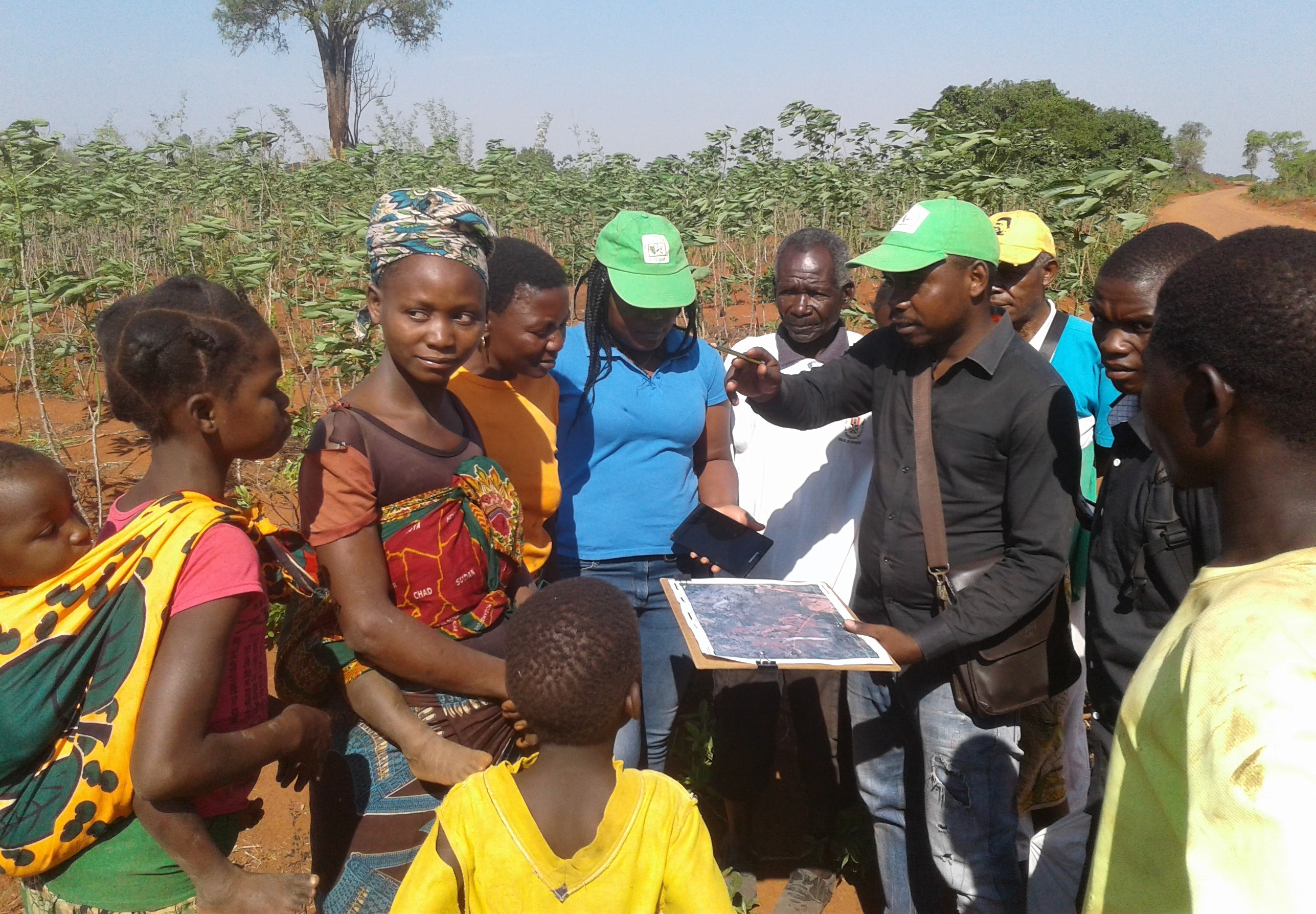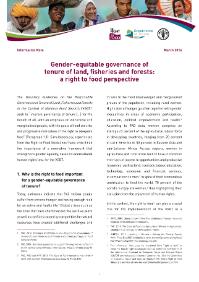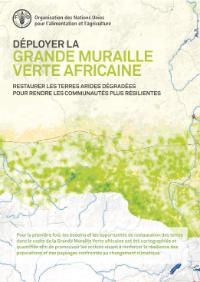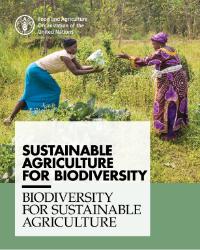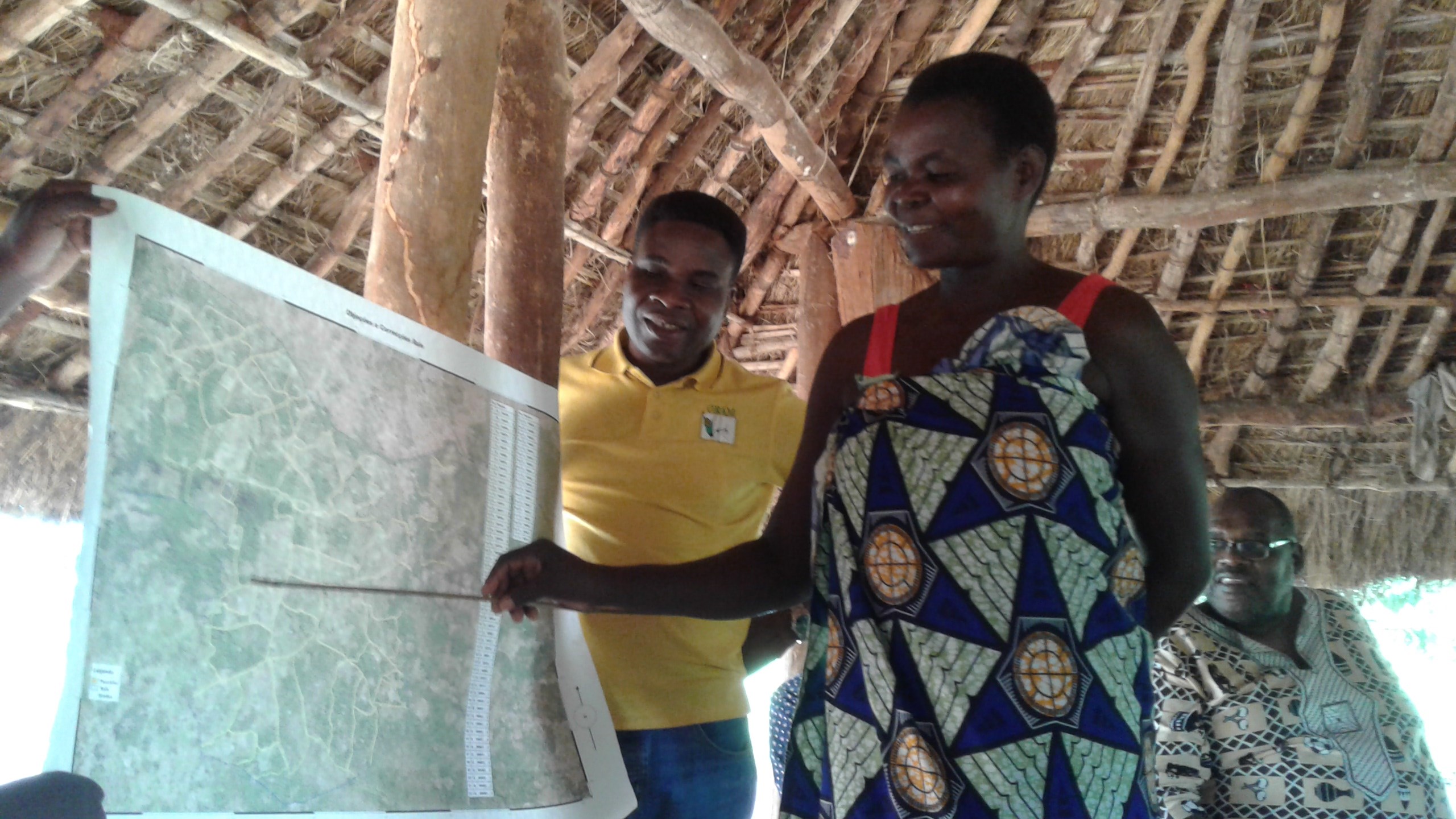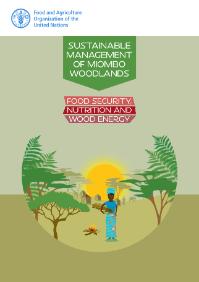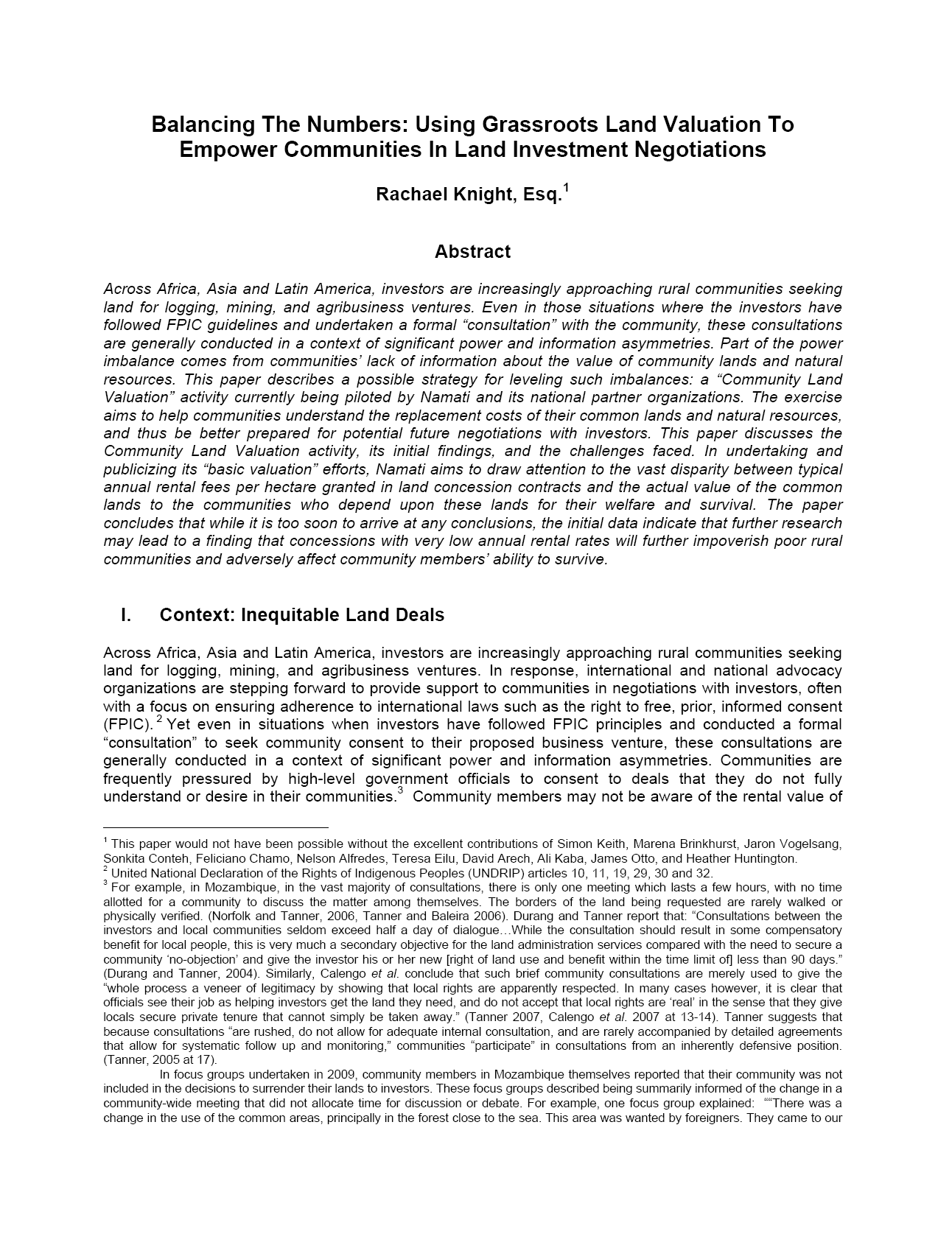The Community Land Value Chain (CaVaTeCo in Portuguese) is an approach that can improve tenure security and management of community lands and natural resources in the context of large-scale land investments. This note presents this approach.
A key feature of CaVaTeCo involves participatory delimitation of family land, leading to formal recognition by community associations of the owners’ rights of occupancy.
In light of the endorsement of the Voluntary Guidelines on the Responsible Governance of Tenure of Land, Fisheries and Forests in the Context of National Food Security (VGGT), this Information Brief aims to provide concise and practical elements for a gender-equitable governance of tenure of…
Pour la première fois, les besoins et les opportunités de restauration des terres dans le cadre de la Grande Muraille Verte africaine ont été cartographiés et quantifiés afin de promouvoir les actions visant à renforcer la résilience des populations et de ces paysages confrontés au changement…
This brochure presents FAO’s work on mainstreaming biodiversity as a cross-cutting theme in the agriculture, fisheries and forestry sectors. It provides examples of on-the-ground activities and highlights relevant international mechanisms. It shows how biodiversity and ecosystems benefit people…
There is today a growing awareness of the importance of providing rural populations with more secure tenure to land and other natural resources, not least in Africa where approximately 90 percent of all land is still unregistered. At the same time there has been a rethinking of approaches for…
The Community Land Value Chain (CaVaTeCo in Portuguese) is an approach that can improve tenure security and management of community lands and natural resources in the context of large-scale land investments. CaVaTeCo provides the conceptual base for the project "Piloting the ‘Community Land…
This study draws on some case studies of land reforms in different South Asian countries. These reforms came on the national and international agenda in a major way in the post- World-War II period and were led by the transition theory, requiring agriculture to provide both surplus and labor for…
Women disproportionately bear the negative impacts of large-scale land investments (in agribusiness, extractives, logging) in the global South. Lack of formal land rights and their subordinate role in the household and community lead to their marginalization in decision-making processes and the…
The FAO Technical Workshop on “Best-practices for the implementation and reporting of SDG indicator 14.4.1 – Percentage of biologically sustainable fish stocks” was held in Rome, Italy, from 21 to 24 November 2017. The purpose of the Workshop was to raise awareness of SDG 14.4.1’s significance…
The Miombo woodland is a vast African dryland forest ecosystem covering close to 2.7 million km2 across southern Africa (Angola, Democratic Republic of the Congo, Malawi, Mozambique, Tanzania, Zambia and Zimbabwe). The woodlands are characterized by the dominance of Brachystegia species, either…
Across Africa, Asia and Latin America, investors are increasingly approaching rural communities seeking land for logging, mining, and agribusiness ventures. Even in those situations where the investors have followed FPIC guidelines and undertaken a formal “consultation” with the community, these…


